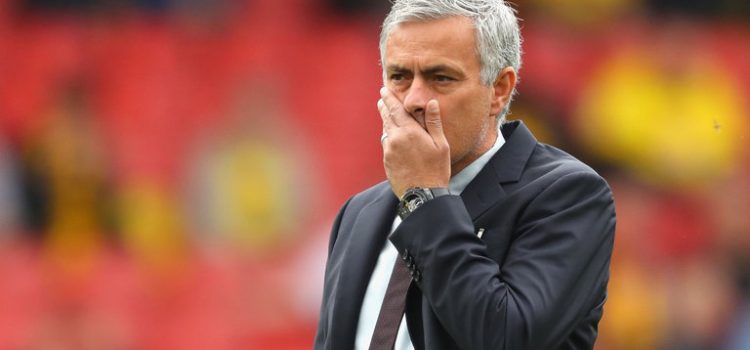After Manchester United secured a valuable point during a turgid, 0-0 draw at Anfield on Monday, fans of the Reds’ could be forgiven for experiencing mixed emotions.
After all, while a hard-fought draw at the home of your bitter rivals is never a bad thing, the defensive nature of United’s display and the fact that their players celebrated so vigorously at the end of the game left a bad taste in the mouths of many.
Is Mourinho Missing a Trick at Old Trafford?
While Liverpool were underwhelming and ultimately stifled by their not so welcome guests, the chasm between their style and United’s was glaringly obvious.
The Reds were fleet-of-foot, adventurous and tenacious in the press, for example, while United were content to defend the width of the penalty area and force their wingers to drop back and serve as part of a disciplined back six.
So while United earned a point and stayed within range of Liverpool, there are two clear questions to ask.
The first is whether or not the ends justifies the means in this instance, particularly given the amount spent by Mourinho and his predecessors on attacking talent and his previous promise to deliver front-foot football at Old Trafford.
While this will be argued at length by Mourinho and his supporters, the second question is far more pressing.
This revolves around the Portuguese managers’ use of his resources, and whether or not his cautious approach and inability to release the shackles is actually inhibiting the ambitions of a talented squad?
This was an accusation levelled at Louis Van Gaal and Sir Alex Ferguson’s immediate successor David Moyes, but for it to be clouding Jose’s credibility so early in his tenure will concern those running the football club.
How United Could Have Asserted Themselves Against Liverpool
There is merit to the argument, however, particularly when you consider the players immediately available to both managers on Monday.
Liverpool were without the key midfield influence provided by Georginio Wijnaldum and Adam Lallana from the start, for example, while United could call on Ander Herrera (who was man-of-the-match), Michael Carrick (who did not feature) and the world’s most expensive players Paul Pogba.
With Henrikh Mkhitaryan and Juan Mata and the precocious Anthony Martial also competing for roles behind Zlatan Ibrahimovic, Mourinho has attacking riches that could have dominated a depleted Liverpool side and its questionable defence.
Rather than leveraging these and using them to their full potential, however, he reverted to type and selected the towering Marouane Fellaini and the reliable Ashley Young to create a more structured and defensively disciplined side.
The Last Word: Why Mourinho’s Resistance to Change Could be his Downfall
This is Mourinho’s mantra, of course, and he will argue that he was happy to settle for a point at the home of his aggressive, in-form rivals.
He will also point to more attacking, front-foot performances against Leicester and Stoke as evidence of United’s increased attacking intent.
There is a growing belief that this is little more than bluster from the stubborn Portuguese, who continues to adopt the age-old political tactic of blaming his predecessor for United’s inhibitions.
This cannot last, however, and at some point Mourinho will need to either leverage his attacking resources and create a side that is always look to hurt the opposition or accept that he will always adopt a safety-first approach when it is required.
If this comes at the expense of results, however, or the United hierarchy feel that his pragmatic style is holding back an expensive-assembled squad, then the attribute that underpinned Mourinho’s early success could ultimately be his downfall.
Written by Lewis Humphries
Follow Lewis on Twitter @LewisRHumphries
Like O-Posts on Facebook
You can also follow O-Posts on Twitter @OPosts

